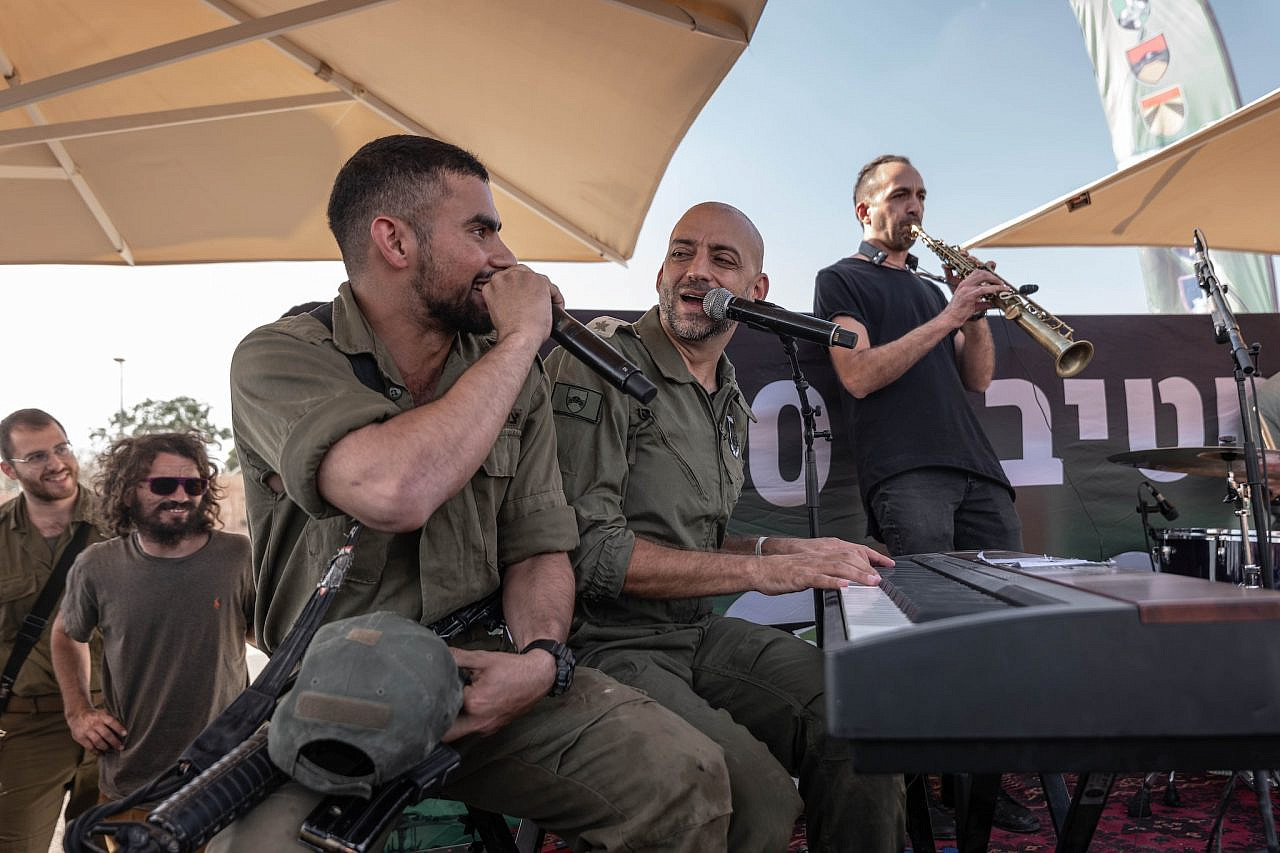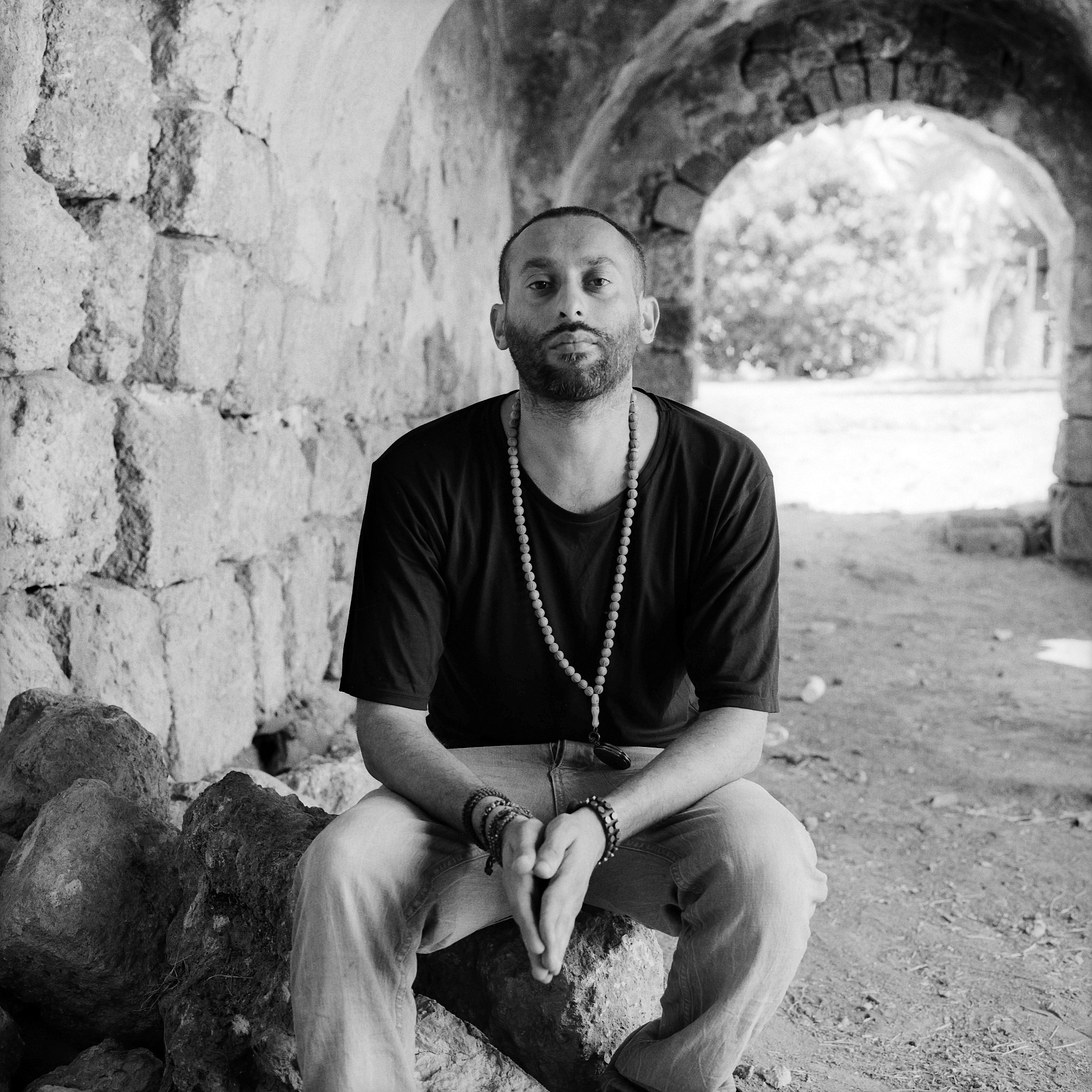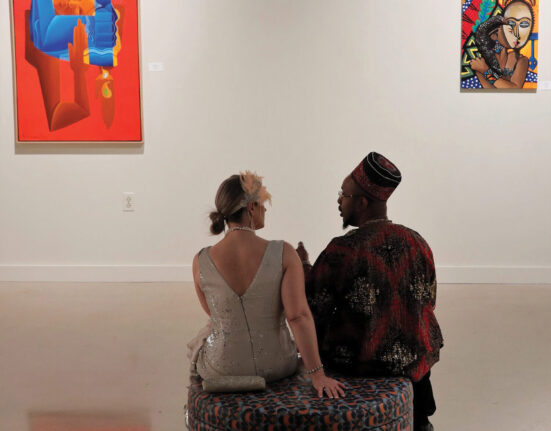At the end of December 2023, as the war in Gaza neared its third month, several Palestinian singers in Israel faced harsh criticism online after they promoted their upcoming Christmas and New Year’s performances on social media. This sparked a widespread debate among their fellow Palestinian citizens.
“How can you talk about partying while our people in Gaza are being massacred right in front of us?” some asked. “It’s their job, let them earn money,” others replied. “We’re tired of the news and we deserve a break.”
Around that time, I had temporarily stopped posting on social media, focusing my energies instead on writing op-eds. I was also wary after many of my fellow artists were arrested for writing even the most innocuous statements online — including the renowned singer Dalal Abu Amneh, who had simply posted “There is no victor but God” on October 7. Meanwhile, prominent Jewish-Israeli artists were calling to “treat most of them [Palestinians in Gaza] as complicit” in the Hamas-led October 7 attack, and singing “May your village burn!” — but the law in Israel never cared about what is said so much as the identity of the person saying it.

Israeli singer Idan Raichel performs live to soldiers at an army base in southern Israel, October 31, 2023. (Chen Schimmel/Flash90)
Yet seeing so many engaged in this online debate, especially amid an unprecedented crackdown on Palestinian social media users, I decided to share my opinion. It was one that ultimately lost me many friends among fellow artists, even if it was generally accepted by the broader Palestinian public.
The post, published on Dec. 16, was entitled “Turn off the music — it’s disrespectful,” and read as follows:
When I was 15, I acted like the world revolved around me. One day, as a funeral procession was passing through our neighborhood, I was sitting in my room and blaring music. Suddenly, my father burst into the room and yelled at me “Turn off the music — it’s disrespectful!” I lowered the volume, trying to explain to him that I was going through a difficult time and needed music to cheer me up. “Other people are grieving a loved one,” he replied. “Right now, it’s not about you. You can put on your headphones and deal with your sadness without announcing it.”
And that’s my feeling now about the New Year’s Eve shows: as an artist, I understand that this is your job and your income, but there are 20,000 funerals — 20,000 whose loved ones cannot even attend, so it’s not about us right now. We don’t have the ability to help them, or protect them, or even to protest for them, so the least we can do is be sad. Please, turn off the music, it’s disrespectful.
And by the way, I also don’t have any income right now and I am not performing. But I have a roof above my head, food on the table, and no one is bombing my neighborhood, so sacrificing a few shows doesn’t seem like much. I honestly am not attacking you, but please, turn off the music and let us be sad together.
Ultimately, all of the celebratory holiday concerts were canceled. But in the months since then, the number of deaths in Gaza has only continued to rise, with entire families wiped off the map, thousands of homes destroyed, and survivors facing mass starvation.
As a Palestinian rapper, my creative expression has always been rooted in our collective oppression and traumas. But the last nine months have forced me to question the purpose and potential of my art — and, indeed, my entire existence. What is the value of a song that costs a few thousand dollars to produce, when it is up against the billions of dollars that Israel receives to bomb a besieged population? What power do we as Palestinians inside Israel have, when our tax money is being used to kill our brothers and sisters just miles away?
Ironically, that feeling of helplessness in the face of the tragedy in Gaza led me back to the studio to collaborate with my younger brother Djamil, a DJ and music producer. What came out of this was a song called “Tuzz Tuzzen,” best translated as “Whatever,” which we released in May.
The song is about the helplessness that we Palestinian citizens of Israel feel as the state to which we pay taxes massacres our people only a few kilometers away; we literally see the Israeli fighter aircraft flying over our heads on their way to bomb Gaza, and then we see the videos and images of their victims. How do we confront that helplessness?
To pay off your loan, take a loan, even two, whatever
We leave this world with nothing,
Earn 100 bucks and the IRS bites off 200
It bombs Gaza with 100 and the rest, you know where they shove it
And here I am stuck in my head
Sometimes I run away, sometimes I stay put.
Even if this hardship is more than I can take
I’m staying here, obstinate
Sometimes I give up, sometimes I hold my head up
Sometimes I run away, sometimes I stand still
Even if I don’t understand politics
I’m staying obstinate, cuz whatever.
Capturing the moment
For most of my life, I stupidly believed that art exists to change the world. Now, I think about art more like the black box flight recorder on an airplane: it won’t navigate the landing; it’s here to document the crash. And as we witness this second Nakba, there are several new songs that I believe best capture the moment we’re living through. This is my Black Box Playlist.
The Egyptian group Cairokee was formed in 2003, and is perhaps best known for its 2011 song “Sout al-Horeya” (“The Voice of Freedom”) that became the soundtrack of the Egyptian revolution. In November, Cairokee released “Telk Qadeya” (“That’s One Cause”), a song that criticizes the rhetoric of liberal values in the West while its governments continue to support the Israeli war on Gaza. It quickly amassed millions of views on YouTube and social media, where it was frequently reposted by Palestinians in Gaza.
They save sea turtles
They kill human animals
But this is one issue, and that’s another.
Another song comes from BiGSaM, a Palestinian Gazan born in the Arab Gulf. In “Law Mara Bas” (“If Only Once”), released in March, he describes the feeling of watching his homeland being destroyed from afar.
If only once
You could rest in my weary soul
If only once
The one on your land found peace
If only once
You find relief from the tyranny of the enemy
If only once
We sacrifice for you our most precious possession
But the song that tops my Black Box Playlist is “Cast Off Your Sandals, Moses,” released in May by the Palestinian singer Rola Azar from Nazareth.
Moses, cast off your sandals
And scale Mount Sinai
Toss the jasmine flowers
On the plains of Palestine
Even her roses resist
As do her olives and figs
Moses, cast off your sandals
Console the child prisoner
Honor shrines defiled
And coffins shamed
Even the casket resists
That very casket, that of Shireen
That last line, of course, refers to the late Al Jazeera reporter Shireen Abu Akleh, who was shot by an Israeli sniper while reporting in Jenin refugee camp in 2022. We witnessed her killing, just as we witnessed Israeli police attack the pallbearers at her funeral procession.
When I first heard Rola’s song, it triggered my emotions — I felt as if I was seeing Shireen’s funeral for a second time, and watching the heroism of the men refusing to drop her casket while surrounded by dozens of baton-wielding police officers. I guess this is also the role of art, even in times of tragedy: to capture a moment and plant it in your soul.
“In the dark times will there also be singing?” the German playwright and poet Bertolt Brecht famously wrote. “Yes, there will also be singing. About the dark times.”
But what if it will not bring light?
Then whatever — Tuzz Tuzzen.







